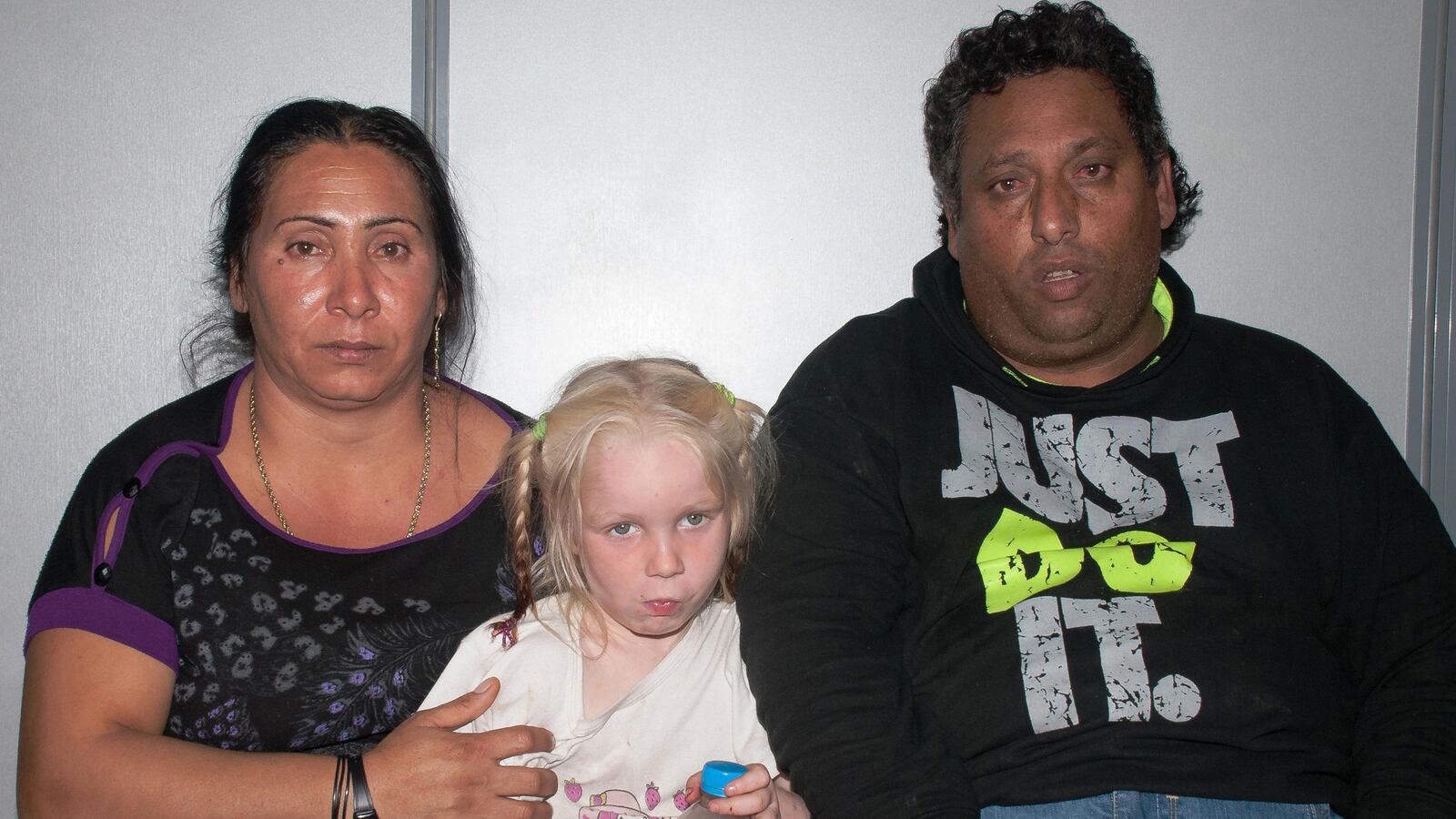Remember Maria? She’s the little blonde girl thought to be a baby “stolen by gypsies” after she was discovered in a Roma camp in Farsala, Greece in October. Eleftheria Dimopoulou, 40, and Hristos Salis, 39, the couple she had been living with for at least five years, were arrested for kidnapping. The young girl, whose birth date is still vague, was taken into foster care by the Greek child protection agency Smile of the Child. A global search for missing blonde girls ensued, prompting thousands of telephone calls from as far away as the United States and Australia. But DNA tests eventually confirmed her biological parents as another Roma couple living in Nikalaevo, Bulgaria.

Instead of being returned to her biological or her adopted parents, Maria will now be placed in foster care in Bulgaria. As a citizen of that nation, she falls under Bulgaria’s state welfare system, not Greece’s.
Maria’s biological mother, Sasha Ruseva, was found living with her mentally-ill husband and seven children in a one-room house with mud floors and a leaky roof. Ruseva said she had left Maria, who she had originally named Stanka, with a Roma woman in Greece when the child was just seven months old because she did not have money to take her back to Bulgaria, where she had several other children. Ruseva said she did not sell Maria to anyone, but she told police investigating the bizarre case that the woman she had left Maria with was not Dimopoulou—implying, perhaps, that Ruseva left the child with an intermediary who brokered a deal with another family, known or unknown to her.
Unlike Maria’s Greek parents, who were getting state aid for more than a dozen children who were not living with them, Ruseva was only receiving aid for her biological babies. She did not register a birth or claim benefits for Maria.
Dimopoulou and Salis are still in jail while authorities assess just how Maria came to be their de facto daughter. They face charges of benefits fraud in addition to falsification of documents. The kidnapping charge has not been dropped, but since Ruseva is not pressing kidnapping charges, the Greek court is expected to modify that to a charge relating to the acquisition of the child rather than the abduction of one. Ruseva reportedly escaped after police threatened her with criminal charges for selling her child. She left her brood unattended and social services quickly swept in and scooped up seven of her children, undoubtedly motivated as much by the global television crews who cast a spotlight on the dire conditions of life in a Roma camp. Since then, the police have been in touch with Ruseva, who is no longer facing criminal charges. According to Diana Kaneva, head of the Bulgarian Social Services Agency that deals with the Nikalaevo camp, Ruseva’s toddlers—aged two and three—will go to one foster family while two other children, aged six and seven, will go with another family. Ruseva’s 15-year-old daughter, who is engaged to be married, will stay in the camp with Ruseva’s relatives. Two of her other children, age eight and 12, have been deemed mentally unfit and will go into a state-run facility for special needs children. Her two children over the age of 18, who both have children of their own, will remain at the camp.
Kaneva says Ruseva will not receive benefits for the children while they are in foster care. She is encouraged to visit them while she works to create a home suitable for such a large family. Police have also questioned the whereabouts of another child who they believe Ruseva birthed shortly after Maria, but whom neighbors say was also left with a Roma family somewhere in eastern Europe while Maria and her husband were working as migrant farm workers.
Kaneva says that while the children may one day be allowed to return to the camp if Ruseva can prove herself as a provider, it is unlikely that they ever will. “Once they get out, these children rarely want to go back,” Kaneva told The Daily Beast.






